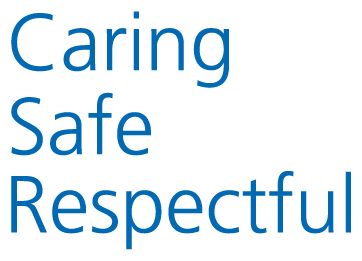Most babies are born fit and healthy, however some babies can develop an infection during or shortly after birth. In a small number of babies an infection can be serious or even life threatening. When a baby develops an infection in the first 72 hours of life, this is called ‘early onset neonatal infection’. This leaflet describes how we monitor babies at risk of infection and how we treat them.
Healthcare professionals caring for your baby will have assessed whether your baby is at risk of an early onset neonatal infection prior to, and following birth.
- Mum has had a previous baby who had a GBS infection*
- GBS has been found on a vaginal swab or from a urine sample taken from mum during the current pregnancy*
- Waters breaking before labour starts
- Baby being born before 37 completed weeks of pregnancy
- Waters breaking for more than 18 hours before your baby is born
- Mum having a fever higher than 38°C or where she is suspected of having an infection in the amniotic fluid/waters
If any of these are relevant to you, the healthcare professionals looking after you and your baby will decide whether your baby should be closely monitored or started on antibiotics. This will be discussed with you before any treatment is started.
*Group B Strep (GBS) is the commonest cause of early onset infection. It is a common bacteria found in approximately 1 in 4 healthy women and usually causes no problems. However, GBS can put your baby at an increased risk of developing an early onset infection. GBS is NOT a sexually transmitted infection.
The most important treatment for infection in newborn babies is antibiotics which are given through a drip. Your baby may need more than one drip during the course of the treatment.
Treating your baby means the baby is more likely to recover without any complications.
Before giving antibiotics it will be necessary to do some tests which will help us determine whether or not your baby has an infection.
The tests will guide us to which type of infection, and how long we may need to continue the antibiotics. The team looking after your baby will keep you informed of the results of the tests, and explain what the results mean.
Once your baby is well enough and has finished the antibiotic course, you can discuss going home with the team of doctors, nurses and midwives looking after your baby. There may be a number of factors which influence the time your baby can be discharged home.
Following discharge, if you have any concerns about your baby, even if they are not in the above list, seek advice from either your GP, NHS Direct, or your local Accident and Emergency department.
If you have any more questions regarding your baby’s treatment, please ask a member of staff caring for your baby.
Even after your baby has been discharged home you should look out for:
- Alterations in behaviour or responsiveness.
- Floppiness.
- Refusing to feed, vomiting or their tummy looks bloated.
- Signs of breathing difficulties.
- Excessive crying.
- Changes in skin colour.
- Abnormal temperature.
- Rapid breathing or pauses in breathing.
Acknowledgements to Dr Bill Yoxall, Liverpool Women’s Hospital



